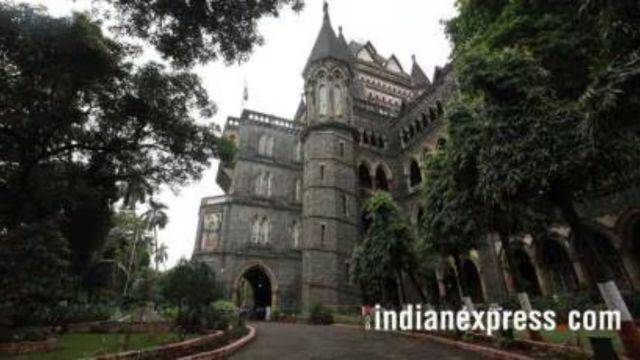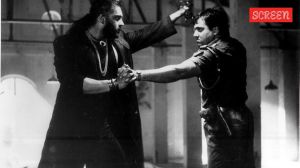How Bombay HC flagged ‘barbaric and inhuman torture’ of accused to ‘extort’ confessional statements as key ground to deflate ATS case
The HC said that confessional statements were “not found truthful and complete on various grounds, including some portions of the same were found to be similar and copied.”
 The accused claimed that their torture was corroborated by medical evidence to "very substantial degree". (Express file photo)
The accused claimed that their torture was corroborated by medical evidence to "very substantial degree". (Express file photo)Acquitting the 12 accused in the train blasts case, the Bombay High Court on Monday flagged the “barbaric” and “inhuman” torture inflicted upon them to ‘extort’ their confessional statements and found it to be one of key reasons that discarded and vitiated prosecution’s case.
“The accused succeeded in establishing the fact of torture inflicted on them to extort confessional statement,” the HC said.
The HC said that confessional statements were “not found truthful and complete on various grounds, including some portions of the same were found to be similar and copied.”
The lawyers representing the accused including senior advocate S Murlidhar (former Delhi HC judge) had argued that the accused persons were languishing in jail for nearly 18 years based on confessional statements taken by the Maharashtra Anti-Terrorism Squad (ATS) through ‘torture’ in the form of beating, threatening and inducement and lost their prime years of lives in incarceration.
The accused claimed that their torture was corroborated by medical evidence to “very substantial degree,” which should render their confessions irrelevant in law under Section 24 of Indian Evidence Act.
The HC observed that one of the accused, Mohammad Sajid Margub Ansari was ‘fainting’ while he was taken for medical examination on October 24, 2006 and he was advised Rantac tablet, ORS and glucose water.
It is significant to note, the HC said that the report of the said date was before recording Part-1 of Ansari’s confessional statement which mentioned that he was fainting while being examined.
“This remark speaks volume about the physical and mental condition of accused just before recording of Part-I of his confession. Therefore, the evidence discussed above casts serious doubt on the likelihood that torture was inflicted on accused to extort confession,” the court observed.
It added that prosecution was “not able to effectively refute” defence’s allegations of torture and evidence of accused “remained unshaken.”
“Thus, in view of language of Section 24 of Indian Evidence Act, we are of the opinion that the confessional statement of the accused is inadmissible in law,” the HC held.
The court also perused medical evidence of doctors of KEM and Bhabha Hospital related to accused Mohamad Majid Mohamad Shafi and noted that it “sufficiently hinted at the possibility of torture being inflicted on the accused to extort a confession.” The HC also referred to “torture inflicted” on other accused while recording their confessional statements.
The court further noted that as per another accused Kamal Ahmed Mohd.Vakil Ansari (who later died in 2021 due to Covid-19), one Deputy Commissioner of Police (DCP) had told him, “I won’t kill you, I have a pen, with this pen, I will make your life hell, your entire family will come on the road…”
The HC observed, “The detailed account of torture is difficult to read and imagine the barbarity of police, and if it is accepted as true and correct, it surely depicts inhuman, barbaric and drastic methods applied by police to extort confession from Ansari. ”
Not allowing a person to sleep, making him stand the whole night with his arms tied above his head, or stretching his legs to 180 degrees, as has been repeatedly testified to by the accused, will not leave visible scars on the body, no matter how much this may bruise the mind or injure the psyche,” the court noted.
It went on to observe, “No one can tell the exact nature of torture the police inflict during such third degree method, except the one who underwent the same…The torture was barbaric and inhuman, and it exposes the frustration, the officers might have at the relevant time for obvious reason.”
The bench refused to accept prosecution’s argument that medical evidence of torture was available only for some and not all accused and same will not detract from strong suspicion that all confessions were obtained under torture.
“If so many accused have been tortured, the threat of torture will loom large for all the accused and be sufficient to vitiate their confession under Section 24 of the Indian Evidence Act,” the HC said.
Justice Anil S Kilor, who authored 671-page judgment for the bench which also consisted of Justice Shyam C Chandak observed that one of the many grounds based on which confessional statements were rendered “inadmissible” was that Part-I and II of some of the statements were “identical.”
The HC also said that variations in mentioning of offences in correspondences made by the concerned Deputy Commissioners of Police (DCPs) before or after recording a confession was also questionable. The court further emphasised on “absence of certificates mandated under the MCOC Rules to establish voluntariness of confessions.”
The HC also noted that S K Jaiswal, who was then Deputy Inspector General (DIG), who granted prior approval for recording statements as a designated authority under MCOCA, “did not enter into the witness box to prove the contents of the letter of prior approval, and mere identification of Jaiswal’s signature did not prove the approval and therefore, confession statements were “inadmissible.”







